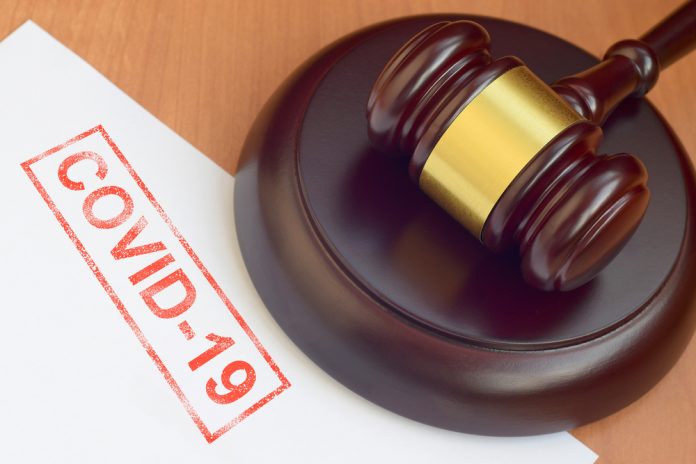There’s no doubt many employers and employees are affected by the unpleasant conditions caused by the COVID-19 pandemic in some ways. The world economy was put to a major halt because of simultaneous lockdowns and quarantines to control the pandemic. With the uncertainties and strict implementation of safety and health protocols, COVID-19 has brought fear, most especially in the workplace, and other areas where the virus is probably laying around.
When problems in the workplace arise, can you sue an employer especially during COVID-19? You can sue your employer during COVID-19 if your rights as an employee are taken for granted. It applies if your employer violated any aspect or provision in the employment laws.
Assert your rights as an employee and find the answer to this common employee question by reading below.
Common Reasons to Sue Employer During COVID-19
Since the current pandemic endangers people’s lives, employers are responsible for keeping workplaces safe from coronavirus. Celler Legal explains that any violation of employment laws must be subjected to investigation and would warrant a lawsuit if proven true.
Here are the most common reasons employees can sue employers during this pandemic:
- Salary Issues: An employee can sue his or her employer if their salary is being denied, including pay for hours or days of work performed, hazardous duty pay, and overtime pay.
- Unreasonable or Illegal Termination: Employees can sue their employers during this health pandemic if they were fired because of wearing personal protective equipment, such as face masks, face-covering or face shield, and gloves. An employee can also sue his employer if he’s fired because of complaining publicly or whistleblowing about unsafe workplace safety procedures or working conditions.
- Forced Labor: An employee can sue an employer if he’s being forced to work without appropriate safety measures, such as disinfecting supplies or wearing protective gear. Forced labor during sick days is also a ground for an employee to sue his employer.

When to Sue Employer
Do you need to wait until the pandemic is over before taking any legal action? Absolutely not. Don’t allow yourself to suffer because of your employer’s actions. Without providing you with protective gear or without disinfecting the workplace, your employer raises the chance of you contracting the virus. This can be very dangerous for you and your loved ones.
Organizations must have adopted and learned lessons from home-based businesses at this point, allowing work to shift from brick and mortar to the online platform. However, not all jobs can be done online, especially manufacturing which requires physical output or product. But forcing employees to come to work during the pandemic is a violation of employee rights.
Here are the important things you have to know when suing your employer for violating your rights during the pandemic:
- Report and Communicate: Employees must try to bring any concerns to the company’s management. However, if these concerns were ignored, dismissed, or got an employee fired, an employee has every right to take legal action and file a lawsuit.
- Take Early Action: Statute of limitations apply in every state, and it varies. This time frame is the allowable period to file a claim or employment lawsuit under the personal injury law and labor law. The sooner you start filing your claim, the better. Taking action today will save yourself from the ill effects of COVID-19, most especially employers getting closer to bankruptcy.
- Gather Evidence: Substantial evidence would be required to file a claim. However, employees cannot just take photos or videos or take recorded conversations. The best way to gather evidence is to hire a lawyer who can help you gather and preserve evidence according to the law.
What to Expect When Filing a Lawsuit
The process of filing a lawsuit against an employer for unpaid salary is straightforward. Your attorney handles the case and performs the following:
- Investigates the matter to collect evidence supporting your compensation claim
- Handles all interactions with the lawyer of the defendant
- Sets proper expectations when you need to participate in the legal proceedings
Employment During the Pandemic FAQs
- Can I demand hazard pay during the pandemic?
According to the Department of Labor, a hazard pay is extra pay for performing hazardous duties. The federal law does not require private companies to offer hazard pay, but the federal government does. Private businesses owe employees hazard pay if this compensation has been outlined in the employment contract or included in the company policies.
Essential workers or any employee at high risk of contracting the virus can demand hazard pay. If you qualify for hazardous duty pay under a private employment contract or federal law, you deserve that additional pay.
- Can an employer still violate employee rights even when employees are working from home?
Some employers take advantage of their employees at a work-from-home setting by asking them to perform work at home even without pay or expecting them to extend work off the clock.
While employees who still have jobs should be grateful, employers must still abide by employment laws. They should provide the pay and benefits specified in the contract in full compliance with the law. Expecting employees to work overtime without pay or not providing accommodations for disabilities violates the rights of employees.
- How much does it cost to file a lawsuit during this pandemic?
Employees suffer so much when they are not getting paid, most especially during this pandemic. Personal injury and employment lawyers know this fact. That’s why many offer legal services on a contingency basis or once their client has received the settlement money or won the case and obtained the award.
Conclusion
Employees can file a lawsuit against employers for violating their rights. Not providing the right wages or benefits, forced labor, and unsafe work conditions are the common reasons employees might want sue their employers.
By talking to a lawyer, evidence will be gathered and preserved to prove your claim, most especially if you were illegally dismissed or terminated due to complaining or whistleblowing. Ensure that your rights as a worker are protected especially during this pandemic.
Find a Home-Based Business to Start-Up >>> Hundreds of Business Listings.

















































